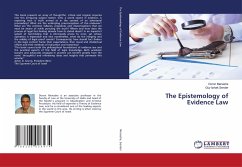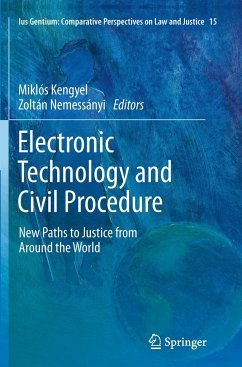
Legal burden of proof
Versandkostenfrei!
Versandfertig in 6-10 Tagen
23,99 €
inkl. MwSt.

PAYBACK Punkte
12 °P sammeln!
High Quality Content by WIKIPEDIA articles! The burden of proof is the obligation to shift the accepted conclusion away from an oppositional opinion to one's own position. The burden of proof may only be fulfilled by evidence. The burden of proof is often associated with the Latin maxim semper necessitas probandi incumbit ei qui agit, the best translation of which seems to be: "the necessity of proof always lies with the person who lays charges." This is a statement of a version of the presumption of innocence that underpins the assessment of evidence in some legal systems, and is not a genera...
High Quality Content by WIKIPEDIA articles! The burden of proof is the obligation to shift the accepted conclusion away from an oppositional opinion to one's own position. The burden of proof may only be fulfilled by evidence. The burden of proof is often associated with the Latin maxim semper necessitas probandi incumbit ei qui agit, the best translation of which seems to be: "the necessity of proof always lies with the person who lays charges." This is a statement of a version of the presumption of innocence that underpins the assessment of evidence in some legal systems, and is not a general statement of when one takes on the burden of proof. The burden of proof tends to lie with anyone who is arguing against received wisdom, but does not always, as sometimes the consequences of accepting a statement or the ease of gathering evidence in its defense might alter the burden of proof its proponents shoulder. The burden may also be assigned institutionally. He who does not carry the burden of proof carries the benefit of assumption, meaning he needs no evidence to support his claim.












